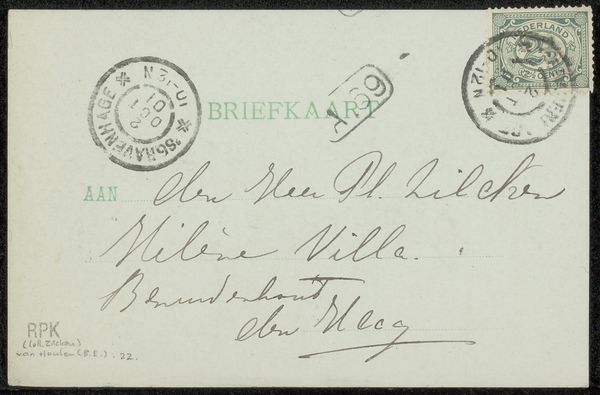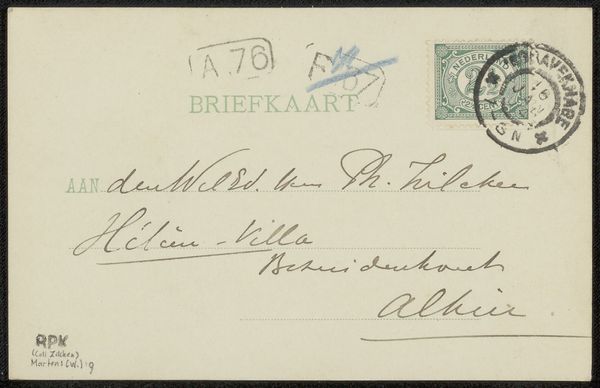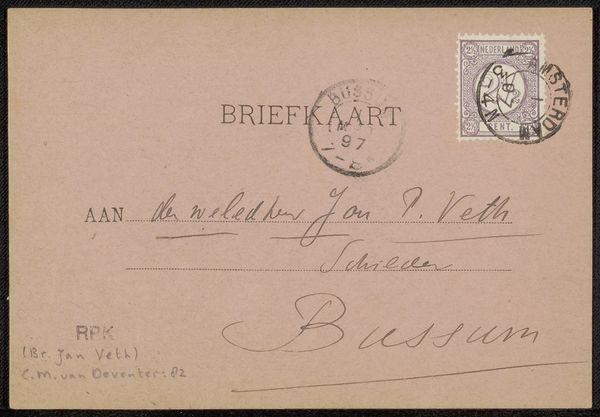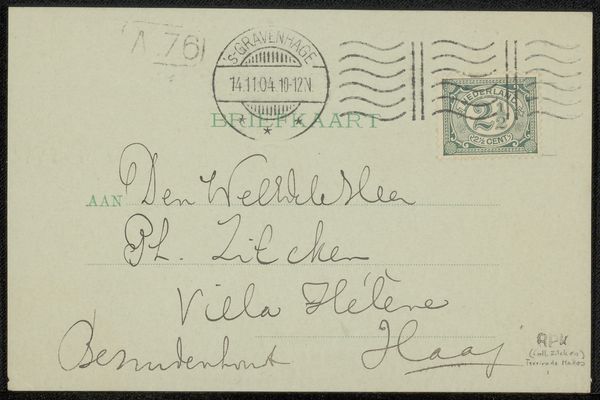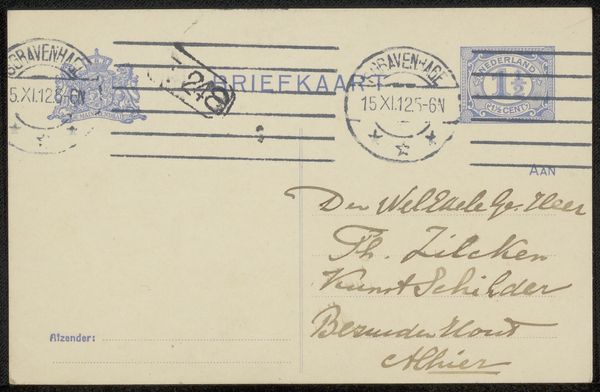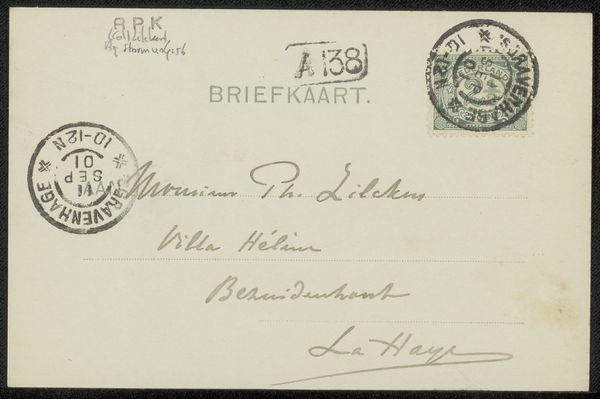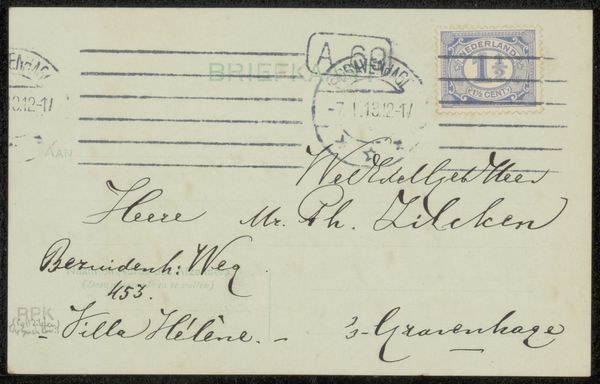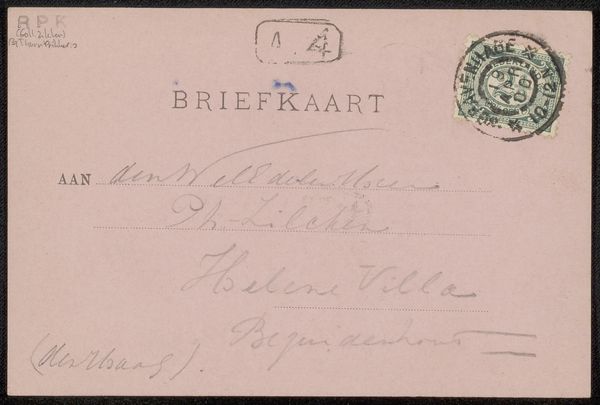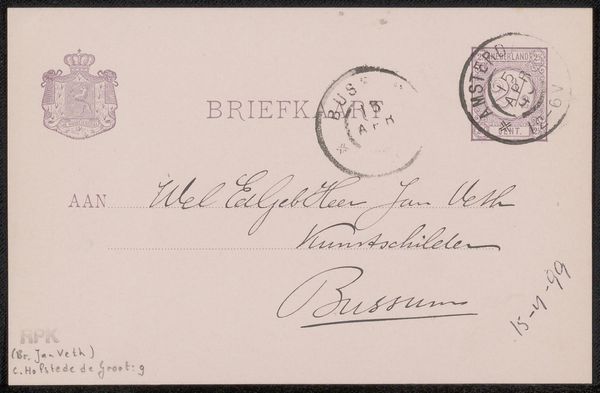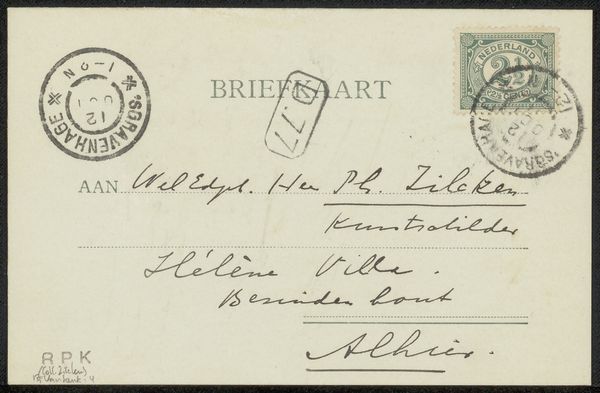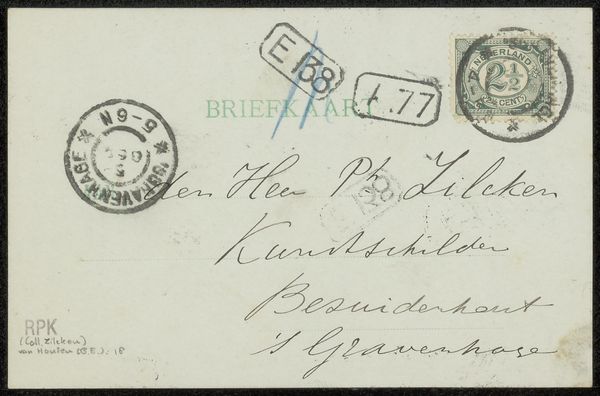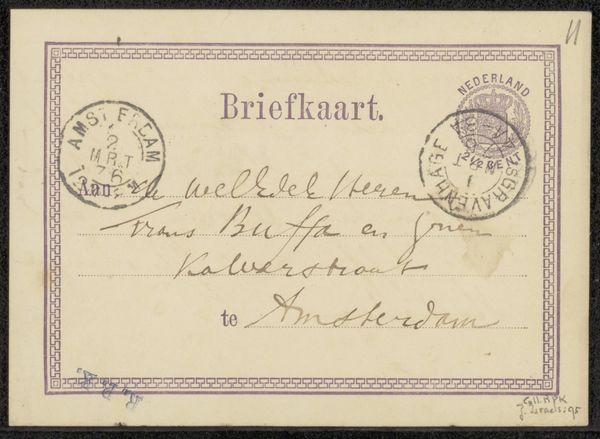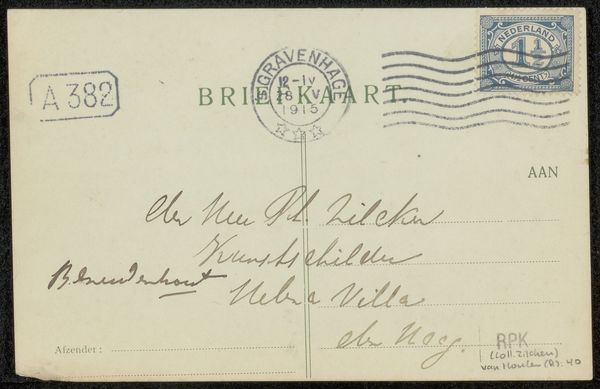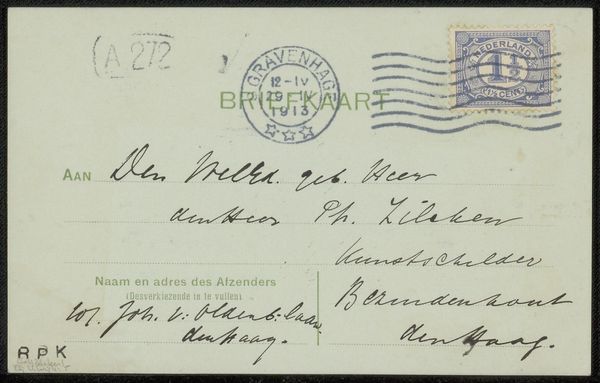
drawing, paper, ink
#
portrait
#
drawing
#
quirky illustration
#
hand-lettering
#
old engraving style
#
hand drawn type
#
hand lettering
#
paper
#
personal sketchbook
#
ink
#
hand-drawn typeface
#
intimism
#
pen work
#
sketchbook drawing
#
sketchbook art
#
calligraphy
Copyright: Rijks Museum: Open Domain
Curator: At first glance, I am struck by the ephemeral nature of this "Briefkaart aan Philip Zilcken." It whispers of fleeting correspondence and the beauty found in everyday communication. Editor: Indeed. From a historical perspective, it offers a fascinating glimpse into the social customs of the early 20th century, before 1926, when Barbara Elisabeth van Houten penned this note, employing ink on paper. The act of handwriting itself becomes a marker of a specific time and place. Curator: Absolutely, and the handwritten text becomes imbued with personality and intent. I’m drawn to the elegant flourishes and loops. It's like a script dance across the page, conveying emotion beyond the mere words themselves. It almost makes one long for the days of letter writing when communication wasn't so instant, impersonal and fleeting! Editor: The stamp in the top right and the postmarks as well offer a specific reading of that earlier time and society. What might seem like random elements today were part of the culture and shared imagery. Think about how much visual weight the physical markings of a letter like this one might carry for the intended receiver versus the digital ping of an email today. Curator: That's an astute observation. The visual language extends beyond calligraphy and evokes a bygone era. These postal markings root the image in lived reality and memory—personal memory as well as cultural. How curious to study this message intercepted along its postal route through time, stripped of its full message. Editor: Its preservation speaks to a fascination with intimism – those personal moments and private interactions. How were they understood, and what can they tell us now? Curator: It’s a quiet work but it resonates with enduring human connections and the power of handwritten language, offering insight to viewers on those more subtle human layers and gestures in even casual communications. Editor: Ultimately, it's a humble but profound testament to the ways we connect and communicate and how culture, time and place imprint onto these connections.
Comments
No comments
Be the first to comment and join the conversation on the ultimate creative platform.
